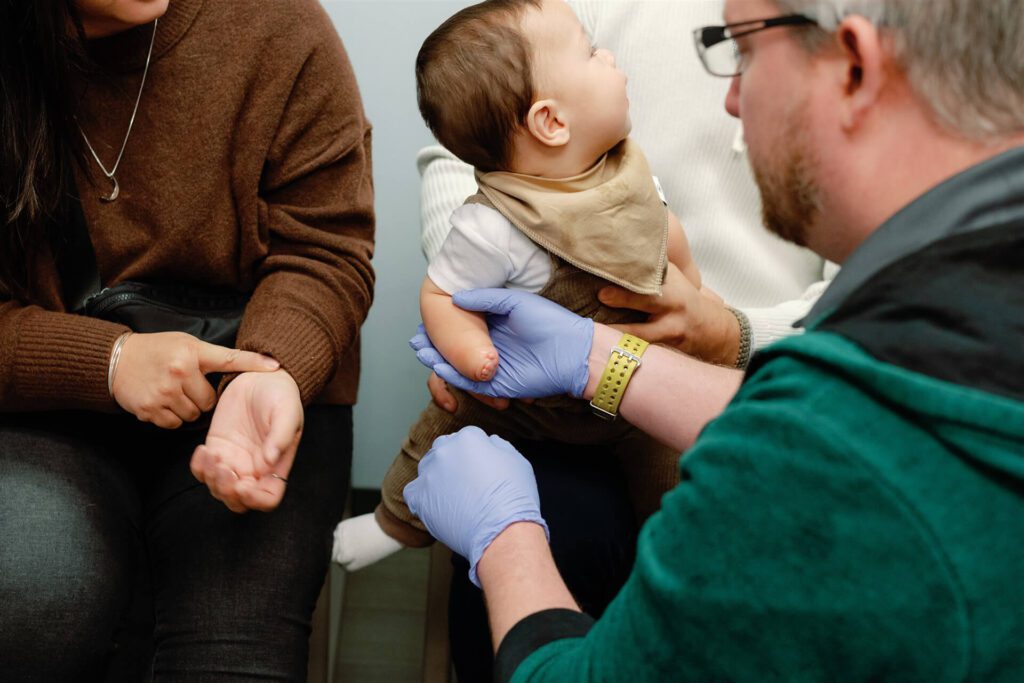Pediatric prosthetics play a crucial role in enhancing the mobility and independence of children with limb differences. For children born with congenital limb deficiencies or those who have undergone amputation due to illness or injury, prosthetics provide them with the ability to move, play, and engage in daily activities just like their peers. The use of prosthetics allows children to participate in physical activities, sports, and recreational activities, which are essential for their physical and social development. Furthermore, prosthetics enable children to perform essential tasks such as dressing, feeding, and personal hygiene independently, fostering a sense of autonomy and self-reliance.
In addition to physical mobility, pediatric prosthetics also contribute to the emotional and psychological well-being of children. The ability to move freely and engage in activities without limitations can boost a child’s self-esteem and confidence. It allows them to feel included and accepted among their peers, reducing the risk of social isolation and promoting a positive self-image. Therefore, pediatric prosthetics are not only instrumental in improving a child’s physical capabilities but also in nurturing their emotional and psychological development.
1. Advancements in Pediatric Prosthetics Technology
In recent years, there have been significant advancements in pediatric prosthetics technology, leading to more functional and comfortable devices for children. Traditional prosthetics were often heavy, cumbersome, and uncomfortable, making it challenging for children to wear them for extended periods. However, with the advent of lightweight materials such as carbon fiber and advanced 3D printing techniques, modern pediatric prosthetics are more comfortable, durable, and customizable to meet the unique needs of each child. These technological advancements have also led to the development of prosthetic limbs with enhanced functionality, allowing children to engage in a wider range of activities with greater ease.
Furthermore, the integration of electronic components and advanced sensors in pediatric prosthetics has revolutionized the field, enabling children to have more natural and intuitive control over their artificial limbs. Prosthetic hands with individual finger movement and sensory feedback systems have been developed, providing children with a greater level of dexterity and sensory perception. These technological innovations not only improve the practical functionality of pediatric prosthetics but also contribute to the overall well-being and quality of life of children with limb differences.
2. The Emotional and Psychological Impact of Pediatric Prosthetics on Children
The emotional and psychological impact of pediatric prosthetics on children cannot be overstated. For many children with limb differences, wearing a prosthetic limb can be a source of empowerment and pride. It allows them to feel more confident in their abilities and appearance, reducing feelings of self-consciousness and insecurity. Moreover, the ability to perform everyday tasks independently with the help of a prosthetic limb can instill a sense of accomplishment and self-reliance in children, fostering a positive self-image and resilience.
However, it is essential to acknowledge that the emotional journey of wearing a prosthetic limb can also present challenges for some children. Adjusting to a new limb and coping with the physical changes it brings can be emotionally taxing. Children may experience feelings of frustration, grief, or even rejection towards their prosthetic limb. Therefore, it is crucial for healthcare professionals, caregivers, and peers to provide emotional support and encouragement to children as they navigate the complexities of living with a prosthetic limb.

3. The Role of Occupational Therapy in Supporting Children
Occupational therapy plays a vital role in supporting children with prosthetics by helping them develop the skills and confidence needed to maximize their independence and participation in daily activities. Occupational therapists work closely with children to assess their individual needs, set functional goals, and provide tailored interventions to improve their motor skills, coordination, and adaptability with their prosthetic limb. Through therapeutic activities and exercises, occupational therapists help children build strength, endurance, and dexterity, enabling them to use their prosthetic limb effectively in various tasks.
Furthermore, occupational therapy focuses on enhancing a child’s cognitive and psychosocial abilities related to using a prosthetic limb. Therapists help children develop problem-solving skills, self-regulation, and coping strategies to overcome challenges associated with wearing a prosthetic limb. Additionally, occupational therapy interventions aim to promote positive self-perception and social integration by fostering a sense of competence and autonomy in children with limb differences.
4. Challenges and Opportunities in Accessing Pediatric Prosthetics for Children
Despite the significant advancements in pediatric prosthetics technology, accessing these devices remains a challenge for many children worldwide. In low- and middle-income countries, limited financial resources, inadequate healthcare infrastructure, and a lack of trained professionals often hinder children’s access to quality prosthetic care. As a result, many children with limb differences are unable to obtain appropriate prosthetic devices that could significantly improve their mobility and independence.
However, there are also opportunities for addressing these challenges and expanding access to pediatric prosthetics globally. International collaborations between healthcare organizations, non-governmental organizations (NGOs), and governmental agencies can help facilitate the transfer of knowledge, resources, and expertise to regions in need. By supporting capacity-building initiatives, training local healthcare providers, and advocating for policy changes, it is possible to improve the availability and affordability of pediatric prosthetics for children in underserved communities.
Pediatric Prosthetic Care in Knoxville TN
In conclusion, pediatric prosthetics have come a long way in recent years, with advancements in technology and design making these devices more comfortable, functional, and aesthetically pleasing than ever before. These improvements have significantly enhanced the quality of life for children who require prosthetics, allowing them to engage in physical activities, pursue their interests, and enhancing mobility & independence.
Choice Orthotics & Prosthetics is a leading provider of pediatric prosthetic services in Knoxville and Oak Ridge, Tennessee. We specialize in both lower and upper limb prosthetics, offering a wide range of options to meet the diverse needs of our young patients. Our team of experienced professionals works closely with each child and their family to design a prosthetic that fits perfectly, functions effectively, and looks great.
In addition to providing high-quality pediatric prosthetics, Choice Orthotics & Prosthetics also offers ongoing support and care for our patients. We understand that a child’s relationship with their prosthetic is not a one-time event but an ongoing journey. Come experience our patient first approach by scheduling your free first-time consult today 865-588-4256 at a clinic near you.




